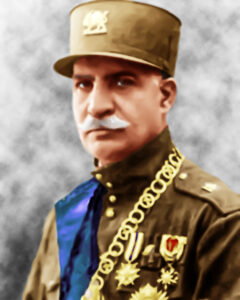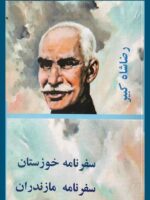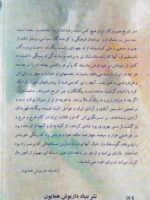
Reza Shah Pahlavi (Persian: رضاشاه پهلوی; pronounced [ɾeˈzɒː ˈʃɒːh-e pæhlæˈviː]; 15 March 1878 – 26 July 1944) was an Iranian military officer and the founder of the Pahlavi dynasty. As a politician, he previously served as minister of war and prime minister of Qajar Iran and subsequently reigned as Shah of Pahlavi Iran from 1925 until he was forced to abdicate after the Anglo-Soviet invasion of Iran in 1941. He was succeeded by his eldest son, Mohammad Reza Shah. A modernizer, Reza Shah clashed with the Shia clergy, but also introduced many social, economic, and political reforms during his reign, ultimately laying the foundation of the modern Iranian State. Therefore, he is regarded by many as the founder of modern Iran.
At the age of 14 he joined the Persian Cossack Brigade, and also served in the army. In 1911, he was promoted to first lieutenant, by 1912 he was elevated to the rank of captain and by 1915 he became a colonel. In February 1921, as leader of the entire Cossack Brigade based in Qazvin province, he marched towards Tehran and seized the capital. He forced the dissolution of the government and installed Zia ol Din Tabatabaee as the new prime minister. Reza Khan’s first role in the new government was commander-in-chief of the army and the minister of war.
Two years after the coup, Seyyed Zia appointed Reza Pahlavi as Iran’s prime minister, backed by the compliant national assembly of Iran. In 1925, Reza Pahlavi was appointed as the legal monarch of Iran by the decision of Iran’s constituent assembly. The assembly deposed Ahmad Shah Qajar, the last Shah of the Qajar dynasty, and amended Iran’s 1906 constitution to allow selection of Reza Pahlavi as the Shah of Iran. He founded the Pahlavi dynasty that lasted until overthrown in 1979 during the Iranian Revolution.
In the spring of 1950, he was posthumously named as Reza Shah the Great (رضا شاه بزرگ) by Iran’s National Consultative Assembly.
His legacy remains controversial to this day. His defenders say that he was an essential reunifying and modernizing force for Iran, while his detractors (particularly the Islamic Republic of Iran) assert that his reign was often despotic, with his failure to modernize Iran’s large peasant population eventually sowing the seeds for the Iranian Revolution nearly four decades later, which ended 2,500 years of Iranian monarchy. Moreover, his insistence on ethnic nationalism and cultural unitarism, along with forced detribalization and sedentarization, resulted in the suppression of several ethnic and social groups. Although he was of Iranian Mazanderani descent, his government carried out an extensive policy of Persianization trying to create a single, united and largely homogeneous nation, similar to Mustafa Kemal Atatürk’s policy of Turkification in Turkey after the fall of the Ottoman Empire.







